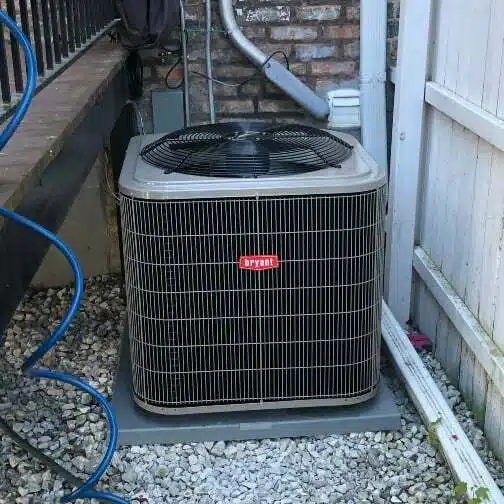cooling FAQ
Do I Need Air Conditioning?
Short Answer: Whether you need air conditioning depends on your personal comfort needs, local climate, budget, and environmental considerations. There are also alternatives available, from energy-efficient AC units to passive cooling techniques, which can accommodate various needs and preferences.

While air conditioning systems are standard features in many homes, offices, and cars across the world, there’s a frequent question we often find ourselves asking: Do we really need air conditioning? The answer isn’t as simple as you might think because it depends on a number of factors including your personal comfort, health needs, climate, and even your environmental views.
Personal Comfort and Health Needs
Air conditioning can contribute greatly to our comfort and wellbeing. During hot summer months, the cooling effects of an air conditioning system can be both a luxury and a relief. For some, a cooler environment aids in getting better sleep and enhances overall productivity.
Moreover, for people with certain health conditions, air conditioning can be more than just a comfort – it can be a necessity. Those who have chronic illnesses such as asthma, COPD, or other respiratory problems often find that air conditioning helps in maintaining a clean, pollen-free environment with stable humidity levels, reducing the risk of a flare-up. Similarly, for elderly individuals and those with heart conditions, cooling down can reduce strain on the cardiovascular system that often comes with extreme heat.
Climate Considerations
The climate where you live can greatly influence the need for air conditioning. For those living in hot, humid climates, an air conditioning system might seem indispensable, offering respite from intense heat and humidity. On the other hand, if you live in a cooler, dry area or a place with cool evenings, you may find that fans and natural ventilation are sufficient to keep your home comfortable.
Environmental Views
The environment is another critical factor to consider. Air conditioning units, particularly older models, can consume large amounts of energy and contribute to greenhouse gas emissions. If you’re environmentally conscious, you may want to weigh this against the comfort provided by an AC unit. Investing in energy-efficient models or other cooling alternatives such as fans or evaporative coolers might be a better option for you.
Cost Implications
The costs associated with air conditioning are multifaceted and extend beyond the initial purchase of the system.
- Purchase and Installation Cost: The upfront cost of an air conditioning unit varies greatly based on the type and size of the system. A window unit may only cost a few hundred dollars, while a central air conditioning system can cost several thousand. Additionally, installation costs should be factored in, which can range from a few hundred to a few thousand dollars depending on the complexity of the job.
- Maintenance and Repair Costs: Routine maintenance, including annual check-ups and cleaning, can add up over time. Moreover, potential repair costs should be taken into account. While many issues can be prevented with proper maintenance, unexpected failures can occur, leading to costly repairs.
- Energy Costs: The ongoing energy costs of running an air conditioning system can be substantial, especially in hotter climates where the system is used extensively. The efficiency of your unit will greatly impact these costs. While energy-efficient models may cost more upfront, they can save a significant amount of money in the long run by reducing your energy bills.
Alternatives to Traditional Air Conditioning
While traditional air conditioning systems are the go-to choice for many, there are numerous alternatives that provide cooling with potentially lower costs and smaller environmental footprints.
- Fans: An energy-efficient and affordable alternative, fans can significantly improve comfort levels by circulating air and creating a wind-chill effect. While they don’t reduce room temperature, they can make the environment feel cooler. This includes ceiling fans, pedestal fans, and smaller desk fans, each with their own cost and efficiency benefits.
- Evaporative Coolers: These are excellent alternatives in dry, hot climates. Evaporative coolers work by passing hot air over water-saturated pads, causing the water to evaporate and effectively reducing the temperature. The cooled air is then circulated in the room. They use less electricity than traditional air conditioning and can be less expensive to install and maintain.
- Geothermal Cooling: Geothermal cooling leverages the earth’s consistent underground temperature to cool your home. By using a series of underground pipes, it exchanges heat with the ground, cooling your home in the process. While the initial installation cost can be high, geothermal cooling is incredibly efficient, potentially saving significant money in energy costs over time.
- Passive Cooling: Passive cooling involves architectural strategies to naturally cool homes without the use of mechanical systems. This includes strategic shading to reduce solar heat gain, insulation to minimize heat transfer, ventilation cooling to increase air movement, and window placement to optimize natural light without unwanted heat.
Conclusion
While air conditioning can offer comfort and health benefits, its necessity depends on a myriad of personal, environmental, and financial factors. It’s crucial to consider all these aspects when deciding if you need air conditioning. But rest assured, with the variety of cooling options available today, you can always find something that suits your specific needs and circumstances.
